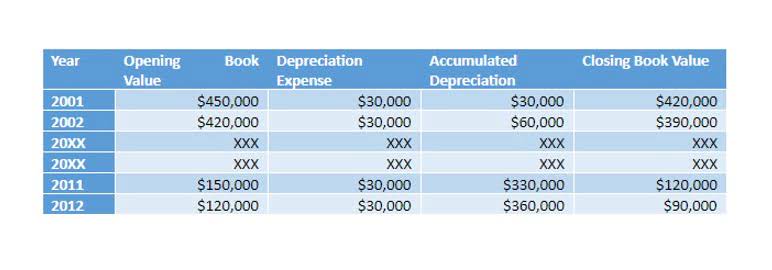Accounting Changes and Error Correction: What it is, How it Works

An error of omission happens when you forget to enter a transaction in the books. You may forget to enter an invoice you’ve paid or the sale of a service. If syncing with apps has stopped, accounts don’t balance, or entries are miscategorized, it’s possible there’s been a misuse of accounting software. Reconciliation allows you to validate the entries in your books, like a double-check before closing. If the balances don’t add up or you have an unmatched entry, you likely have a reconciliation error.
- A particular example of an error of original entry is a transposition error where the numbers are not entered in the correct order.
- Error is considered as an unintended mistake during the course of recordkeeping.
- Here are some FAQs about the most common accounting errors and how to avoid them.
- Closing the books means that all data has been entered and accounts are reconciled for a specific time period.
Error of Omission
More importantly, under-compensation in particular can hurt your relationship with employees. Too many incorrect paychecks can break trust in your accounting system or your business as a whole. In fact, a survey by QuickBooks showed that 1 in 6 small business employees said a single inaccurate paycheck would make them quit their job. Errors of principle can also be a concern when a company changes an established principle already in processing to another, new principle. For example, it often happens with accounts payable when the account is not credited when goods purchased on credit don’t make it into the ledger.
- Any changes or errors in previous financial statements impair the comparability of financial statements and therefore must be addressed appropriately.
- With AI-powered automations and data synced from third parties, such as banks or payment platforms, errors can be introduced if you don’t stay on top of your books.
- In other cases, you may need to notify others of the mistake as you’re correcting it.
- While some businesses rely mainly on Excel spreadsheets and manual data entry, investing in accounting software can be a major time saver.
Not using your accounting software properly
The trial balance is a type of worksheet that accountants use to record the debit and credit entries. The totals from the trial balance are later carried over onto the financial statements at the end of the reporting period. However, there are instances where accounting errors exist, but the trial balance is not out of balance, which can be more difficult to identify and fix the errors.
- For example, over-reporting of expenses will cause taxable income to increase, which would cause business owners to be required to pay more taxes when the year ends.
- An accounting error is an error in an accounting entry that was not intentional.
- This is one of the accounting errors where transactions have been recorded in accordance with the double-entry at the correct amount.
- New business segments may be integrated from time to time as a company grows or enters into a new segment.
- If discovered after a financial statement is released, an error in principle can end up being costly to a company.
Omission errors
Then, once the issue is identified, a correcting entry of the suspense account is carried out. Errors that involve violation of accounting principles, misinterpretation https://www.bookstime.com/articles/accounting-errors of facts, unintentional unrealistic estimates or incorrect method of calculation. These errors are usually caused due to insufficient accounting knowledge.
Entry Reversal
Another accounting error is a principle error, where an accounting entry violates a fundamental accounting principle. Transposition errors are the result of reversing two digits that were entered back-to-back. Serious financial consequences can result from a transposition error, such as paying an employee $8,268 instead of $2,868.
Balance sheet items on the profit and loss statement

Since accounts payable are short-term debts owed to supplies or vendors, it involves many moving invoices, which sometimes get lost in the shuffle. An error of principle happens when an accounting principle is misapplied in a particular situation. For instance, cash sales of $2,500 have been recorded on the debit side and credited to bank account.

How can accounting errors affect your business?
But, of course, accounting errors happen, sometimes, despite people’s best efforts. Errors in accounting happen, sometimes inadvertently and sometimes through a lack of understanding of accounting principles. Either way, the information you get from your accounting system is only as good as the data you enter.

- Yet it’s essential that your accounting stays current and that you don’t fall behind.
- In this instance, a bookkeeper or accountant records the debit or credit into the appropriate account but fails to update the correct subsidiary account or ledger.
- Taking extra care to ensure that errors of principle do not occur in these transitions will be very important for a company’s accounting success.
- Make sure employees who are entering expenses into your accounting system understand your accounts and descriptions.
- Accounting errors are easier to identify when they cause a difference between debit and credit totals of a trial balance.
- Please note that different types of errors may have overlapping characteristics.
- Accounting errors are usually unintentional mistakes made when recording journal entries.
The accounting errors, then, can be divided into two main groups; the errors where the trial balance still balances and errors that cause the trial balance imbalance. For example, the credit sales of $5,670 have been recorded as $5,760. Both debit which is accounts receivable accounting errors must be corrected: and credit, sales revenue, has been recorded as $5,706. This results in the overstatement of both credit sales and accounts receivable of $90. An accountant accidentally records a sales invoice twice, resulting in an overstatement of revenue and accounts receivable.
Double Entry Bookkeeping is here to provide you with free online information to help you learn and understand bookkeeping and introductory accounting. If you find a new or updated transaction after the closing date, you likely have a closing error on your hands. But this time, because of a flawed update to its software, a firm that is normally part of the solution to IT problems has instead caused one. The US firm, based in Austin, Texas, is a listed company on the US stock exchange, featuring in both the S&P 500 and the high-tech Nasdaq indexes.
